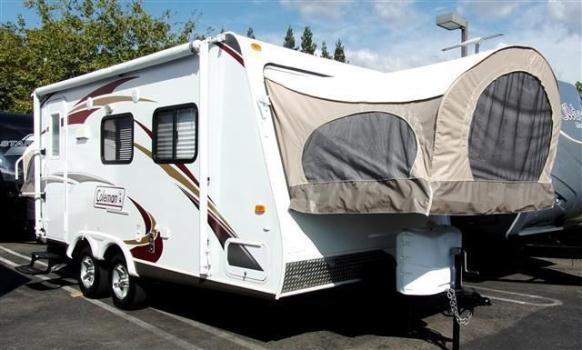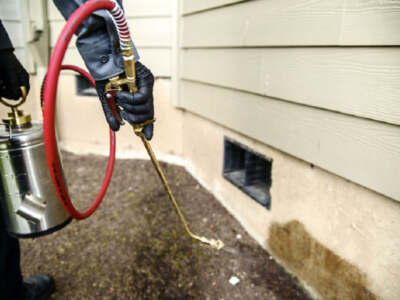Getting a recreational vehicle gives you great lifestyle options. But whether it’s a small campervan, a fifth-wheel trailer or a large Class-A motorhome, it’s a significant investment, so you need to look after it. We provide an RV maintenance checklist to help you keep your vehicle in tip-top condition so you can hit the road with confidence, whenever, wherever and however you decide to travel.
RVing increased greatly in popularity during the last couple of years, letting people vacation together at a reasonable cost. However, maintaining your vehicle properly is vitally important, not only so it doesn’t let you down while traveling, which can be pricy and frustrating, but also to minimize its depreciation in value. You will need to keep it clean and protected from extreme weather as much as possible and pay special consideration to the onboard equipment that powers all its features.
Off-Road RV Maintenance
Although your RV will spend a lot of time parked, you shouldn’t forget about it. Continuing the good habits from when you first got it, keep the interior clean and free of all food and perishable items. For similar reasons — stopping the potential entry of mold and unwanted creatures — if the vehicle is old, fix any gaps that appear between the doors and the chassis. The valves on the vehicle’s propane tank, needed for the generator, should all be closed, and to be doubly sure, sniff for leaks whenever you enter the vehicle and open the windows. The levels of liquids such as oil, antifreeze, and brake, radiator and windshield wiper fluids should all be kept topped up.
Put a Roof Over It
Rain can cause rust, bird droppings can damage a vehicle’s exterior, and even prolonged hot sunshine may affect paintwork and tires. You might therefore want to have a roof over your precious RV. A compact camper van — perhaps one of the ‘pop-top’ models — might just fit in a regular garage, but many are taller than the usual 8’ ceiling height. Length, of course, will also be an issue with other models, which can be anything up to 50’ long. A simple car port can be a good solution, but you will probably need a permit to build one, as you would for a large garage. If nothing else is possible, put a tarpaulin over your vehicle.
Get Ready for Winter
Cold seasons can adversely affect your RV in various ways. Snow must be removed regularly so it doesn’t build up, forming ice that is difficult to remove and maybe even damaging to the roof — another reason to have a carport. Drain all water pipes and freshwater and wastewater tanks. Put special RV antifreeze in the plumbing using the RV’s own water pump — using a ‘bypass kit’ to make sure it doesn’t get into the fresh water tank — or a separate hand pump. Alternatively, you can get an expert to ‘winterize’ everything properly. In addition, consider using jacks to raise your vehicle somewhat so the tires don’t acquire ‘flat spots’ over the winter.
Maintain Your RV’s Electronics
A motorhome battery can be maintained in optimal condition using a trickle-charging tender that keeps it ready for use but not overcharged. It can lose voltage capacity during cold weather, so then it’s probably better to remove it and keep it in the house, along with any smaller batteries used in the RV. You will probably want to go online while away, and although many campsites offer Wi-Fi, the new phenomenon of satellite constellation internet suits RVers well as it can be accessed even in remote locations. Fortunately, the equipment you need for this is made to be durable, but if storms are expected you should check that it’s fixed securely or take it down and store it somewhere safe.
Consider RV Self Storage
Not everybody can build a large garage or a carport. Also, parking on streets is far from ideal and your homeowners’ association may not approve of a motorhome on show on your driveway. Fortunately, the self storage industry provides spaces for large vehicles, either parking spots with or without roofs or indoor units providing more protection against the elements. For maximum TLC, some large units have climate control, keeping temperature and humidity levels constant, which is particularly useful for expensive vehicles and in places with extreme weather. The average national cost of a 10’x30’ storage unit is currently $257 as per Yardi Matrix data — some of these have higher-than-average roofs for large RVs — and is about $80 more with climate control.
Maintenance Before You Hit the Road
You now have a well-maintained RV! However, there are some extra things you need to do just before you take off. Always check that the oil and filters in your RV’s generator do not need changing. Hot destinations like deserts require a well-functioning AC system and getting professional maintenance for this is recommended. If your RV has an awning, check that as well, as you might appreciate the shade! Conversely, it can get cold in the mountains — and in deserts at nighttime — so make sure your heating system will be able to cope. Finally, run your RV’s generator for an hour or so and test all the appliances it powers — in fact, to be sure of good functionality, this can be done once a month or so when the vehicle is in storage.
You can now think about having great new experiences traveling all across the US! Attend to all the maintenance essentials and you should never find yourself stuck on a roadside phoning for help. And in addition to simply motoring, you could use that satellite internet and join the growing trend for working remotely from a recreational vehicle, and with a well-maintained rig you could even make money by renting your RV. Happy RVing!










Comments